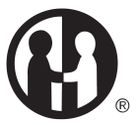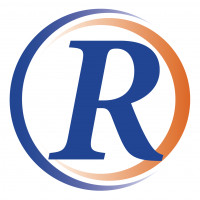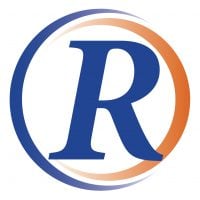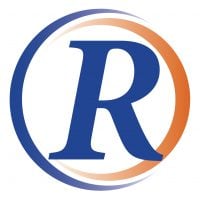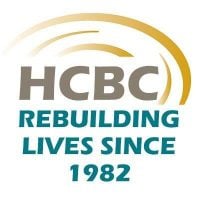Central State MHC - Lees Summit
Drug Rehab Center in Lees Summit, Missouri
At Central State MHC - Lees Summit, experienced clinicians and certified medical professionals work together to provide personalized evidence-based treatments designed to address physical and emotional aspects of addiction, resulting in comprehensive recovery plans designed to help clients achieve long-term sobriety.
About Central State MHC - Lees Summit in Missouri
Central State MHC - Lees Summit is an Addiction Treatment Facility located in Lees Summit, Missouri. Established in 1984, this facility specializes in treating individuals suffering from alcoholism, drug addiction, and dual diagnosis. With a focus on providing comprehensive care, Central State MHC - Lees Summit offers a range of treatment options including aftercare support, drug rehab, intensive outpatient programs, outpatient services, and residential levels of care. As an accredited facility, Central State MHC - Lees Summit holds a state license certification, ensuring that they meet the highest standards of care in addiction treatment. Affiliated with Central States MHC, they are committed to providing compassionate and effective treatment to individuals seeking recovery.
Central State MHC - Lees Summit offers a variety of services to address addiction and substance abuse. Their aftercare support programs aim to provide ongoing assistance and guidance to individuals in maintaining sobriety after completing treatment. The drug rehab program offers comprehensive treatment to help individuals overcome their addiction, while the intensive outpatient program provides more structured and intensive therapy for those who require a higher level of care. Additionally, the facility offers outpatient services for individuals who can benefit from regular therapy sessions while maintaining their daily routines. For those in need of more intensive treatment, Central State MHC - Lees Summit provides residential levels of care, offering a safe and supportive environment for individuals to focus on their recovery journey.
Genders
Ages
Modality
Additional
Accreditations
State License
Conditions and Issues Treated
Levels of Care Offered
This center offers a variety of custom treatment tailored to individual recovery. Currently available are Aftercare Support, Drug Rehab, Intensive Outpatient, Outpatient, Residential, with additional therapies available as listed below.
An intensive outpatient program (IOP) is effective for drug rehab, but it can take six months to several years to complete. It’s the most popular type of drug rehab program in the United States. One example of a successful IOP success story is actor and comedian Chris Rock, sober since 1990.
An IOP allows participants to spend nights at home while attending meetings throughout the day. It’s a good way for drug addicts to make a recovery plan in an outpatient setting while still supporting their loved ones.
Alcohol or drug addiction, or co-occurring disorders, are treated in an outpatient program. The patient must attend therapy and other programs at the facility but can return home each night.
Outpatient treatment allows recovering addicts to live at home while receiving addiction treatment. Outpatients can attend group sessions for a few hours per week. Outpatients may also continue to work full time and study/attend school without interruption if they choose.
Residential treatment programs are those that offer housing and meals in addition to substance abuse treatment. Rehab facilities that offer residential treatment allow patients to focus solely on recovery, in an environment totally separate from their lives. Some rehab centers specialize in short-term residential treatment (a few days to a week or two), while others solely provide treatment on a long-term basis (several weeks to months). Some offer both, and tailor treatment to the patient’s individual requirements.
The accomplishment of completing a drug or alcohol treatment program is just the first step. Once that is complete, aftercare support comes into play. This includes helping people adjust to life without substances outside of guidelines with assistance like getting sober living accommodations and career counseling and AA/NA programs for those who are struggling between sobriety or want continued help in maintaining it once they have completed their initial rehabilitation at an addiction facility.
Aftercare comprises services that help recovering addicts readjust to normal day-to-day activities while working on specific issues. These problems include psychiatric issues, family problems caused by substance abuse, continuing education pursuits if desired during rehab, etc. These can last up to one year+ depending on what’s needed most urgently upon completion of earlier stages.
Therapies & Programs
Different people react differently to various treatment options. Some drug rehabilitation centers offer individualized treatment that caters to the specific needs of a drug addict. The best treatment option varies on an individual depending on the type of drug abused, life history, medical condition of the person, social circumstances, and the environment they live in now.
When a person enters drug rehab, they usually have anti-drug associations such as withdrawal symptoms, stress, cravings, etc. The first step of drug rehab is to detoxify the body from any residual substances in it. Drug rehabilitation centers usually employ trained medical professionals to help in this process. Usually, the initial detoxification lasts for five days, where the person is monitored under close supervision.
Family therapy sessions typically involve the addict and their family members. During these sessions, a therapist will work with everyone involved to help them understand addiction and find healthy ways of coping without substance abuse.
Some addicts might feel embarrassed about their substance abuse problems. By encouraging family members to attend these sessions, therapists can show addicts that they’re not alone in dealing with addiction. Therapists can also work with family members to help them understand addiction and learn how to offer support and encouragement to their loved one as they deal with substance abuse issues.
Attending group therapy at Central State MHC - Lees Summit in , is a useful way for those seeking sobriety to realize they aren’t the only one going through it.
This is when a group of people on different recovery phases get together and talk about what they’re going through, their triggers, successes, and failures. This can include alternative types of therapies too! Group therapy may occur on an outpatient or inpatient basis with groups that have no pre-existing relationships outside the session, unlike support groups where everyone already knows each other beforehand.
This type of cognitive-behavioral therapy helps people understand how their thoughts, behaviors, and feelings are interconnected. It can help patients with borderline personality disorder gain control over their actions and stop self-harming thoughts and attempts.
Cognitive Behavioral Therapy is a type of psychotherapy that helps people address the thoughts and behaviors that may have led to their addiction. It also helps change negative thoughts into positive ones and promotes healthy communication between addicts and those around them. CBT is an efficient treatment for individuals suffering from all sorts of addictions.
Cognitive Behavioral Therapy (CBT) focuses on the underlying thoughts and behaviors that caused the problem of addiction in the first place and may cause a relapse. Negative feelings are common in drug abuse disorders, but they can lead to co-occurring disorders if not recognized. CBT involves strategies that help to change the behavior pattern by restructuring negative thoughts into positive ones. It helps to remove these feelings, and it provides long-term benefits. Also, CBT promotes self-awareness, self-control and can be administered as a mono-therapy or as part of combination therapy.
The use of Rational Emotional Behavior Therapy for addicts has been shown to have positive and desirable outcomes. It is a form of specific counseling that replaces negative and self-limiting thoughts with positive and productive behaviors. Self-defeating thoughts and habits can limit your possible successes. Some examples of this are procrastination, unhealthy eating, and angry outbursts. You may not be aware that some unhealthy behaviors and thoughts are sabotaging your potential accomplishments.
Payment Options Accepted
For specific insurance or payment methods please contact us.
Central States MHC Associated Centers
Discover treatment facilities under the same provider.
- Central State MHC - Blue Springs in Blue Springs, MO
- Central State MHC - Richmond in Richmond, MO
- Central State MHC - Warrensburg in Warrensburg, MO
- Central State MHC - Sedalia in Sedalia, MO
- Central State MHC - Lexington in Lexington, MO
Learn More About Central States MHC Centers
Additional Details
Specifics, location, and helpful extra information.
Lees Summit, Missouri 64086 Phone Number(816) 525-2021 Meta DetailsUpdated November 25, 2023
Staff Verified
Central State MHC - Lees Summit Patient Reviews
There are no reviews yet. Be the first one to write one.
Lees Summit, Missouri Addiction Information
Opioid-related overdoses in Missouri have been increasing steadily for the past three decades. In 2018, more than 1,130 people in Missouri died from opioid abuse. Methamphetamines and marijuana abuse have surpassed opioid abuse in Missouri. Missouri is the number 1 methamphetamine manufacturer in the country with more than 27 meth labs per 100,000 people.
Over 6% of the population in Lees Summit struggles with addiction to drugs or alcohol. This can have a ripple effect on friends, family members, and co-workers. The most commonly abused drugs in Lees Summit are marijuana, cocaine, and heroin. Treatment may last anywhere from a few weeks to a few months, depending on the severity of the addiction and the person's individual needs.
Treatment in Nearby Cities
- Trenton, MO (89.7 mi.)
- Washington, MO (183.8 mi.)
- Carrollton, MO (56.3 mi.)
- Saint Louis, MO (226.7 mi.)
- Warrensburg, MO (36.8 mi.)
Centers near Central State MHC - Lees Summit
The facility name, logo and brand are the property and registered trademarks of Central State MHC - Lees Summit, and are being used for identification and informational purposes only. Use of these names, logos and brands shall not imply endorsement. RehabNow.org is not affiliated with or sponsored by Central State MHC - Lees Summit.
